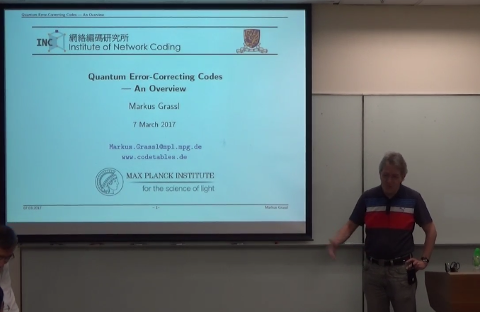
Quantum error-correcting codes (QECC) are an important component of any future quantum computing device. I will give a brief introduction to the general theory of QECCs and illustrate their relation to classical codes.
The talk does not assume any background in quantum information.
Markus GRASSL received his diploma degree in Computer Science in 1994 and his doctoral degree in 2001, both from the Fakultät für Informatik, Universität Karlsruhe (TH), Germany. From 1994 to 2007 he was a member of the Institut für Algorithmen und Kognitive Systeme, Fakultät für Informatik, Universität Karlsruhe (TH), Germany. From 2007 to 2008 he was with the Institute for Quantum Optics and Quantum Information of the Austrian Academy of Sciences in Innsbruck. From 2009 to 2014, he was a Senior Research Fellow at the Centre for Quantum Technologies at the National University of Singapore. In 2014, Markus Grassl joined the Institute of Optics, Information and Photonics at the Universität Erlangen-Nürnberg and the Max Planck Institute for the Science of Light (MPL). Currently, he is co-group-leader at MPL.
His research interests include quantum computation, focusing on quantum error-correcting codes, and methods of computer algebra in algebraic coding theory. He maintains tables of good block quantum error-correcting codes as well as good linear block codes. He serves as associate editor for Quantum Information for the IEEE Tranasctions on Information Theory and is on the editorial boards of the International Journal of Quantum Information as well as Advances in Mathematics of Communications.
